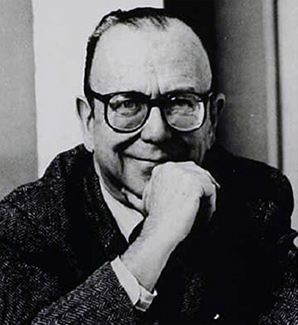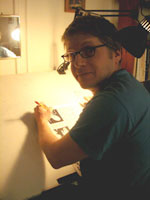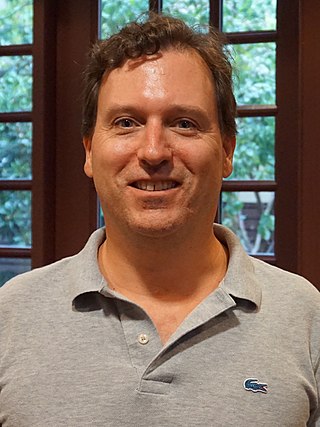Related Research Articles

Gary Arlen Kildall was an American computer scientist and microcomputer entrepreneur. During the 1970s, Kildall created the CP/M operating system among other operating systems and programming tools, and subsequently founded Digital Research, Inc. to market and sell his software products. Kildall was among the earliest individuals to recognize microprocessors as fully capable computers, and to organize a company around this concept. Due to his accomplishments during this era, Kildall is considered a pioneer of the personal computer revolution.

Robert L. Heilbroner was an American economist and historian of economic thought. The author of some 20 books, Heilbroner was best known for The Worldly Philosophers: The Lives, Times and Ideas of the Great Economic Thinkers (1953), a survey of the lives and contributions of famous economists, notably Adam Smith, Karl Marx, and John Maynard Keynes.
The terms poverty industry or poverty business refer to a wide range of money-making activities that attract a large portion of their business from the poor. Businesses in the poverty industry often include payday loan centers, pawnshops, rent-to-own centers, casinos, liquor stores, lotteries, tobacco stores, credit card companies, and bail-bond services. Illegal ventures such as loansharking might also be included. The poverty industry makes roughly US$33 billion a year in the United States. In 2010, elected American federal officials received more than $1.5 million in campaign contributions from poverty-industry donors.

The Gerald Loeb Awards, also referred to as the Gerald Loeb Awards for Distinguished Business and Financial Journalism, is a recognition of excellence in journalism, especially in the fields of business, finance and the economy. The award was established in 1957 by Gerald Loeb, a founding partner of E.F. Hutton & Co. Loeb's intention in creating the award was to encourage reporters to inform and protect private investors as well as the general public in the areas of business, finance and the economy.

Josh Neufeld is an alternative cartoonist known for his comics journalism work on subjects like graphic medicine, equity, and technology; as well as his collaborations with writers like Harvey Pekar and Brooke Gladstone. He is the writer/artist of A.D.: New Orleans After the Deluge, and the illustrator of The Influencing Machine: Brooke Gladstone on the Media.
Donald L. Barlett is an American investigative journalist and author who often collaborates with James B. Steele. According to The Washington Journalism Review, they were a better investigative reporting team than even Bob Woodward and Carl Bernstein. Together they have won two Pulitzer Prizes, two National Magazine Awards and six George Polk Awards. In addition, they have been recognized by their peers with awards from Investigative Reporters and Editors on five separate occasions. They are known for their reporting technique of delving deep into documents and then, after what could be a long investigative period, interviewing the necessary sources. The duo has been working together for over 40 years and is frequently referred to as Barlett and Steele.

Robert Jacob Samuelson is a conservative journalist for The Washington Post, where he has written about business and economic issues since 1977. He was a columnist for Newsweek magazine from 1984 to 2011.
The Silicon Prairie, a take on the Silicon Valley, can refer to one of several places in the United States including: the Dallas–Fort Worth area in Texas, the Chicago and Champaign-Urbana areas in Illinois, and Madison, Wisconsin. Silicon Prairie is also a reference to a multi-state region loosely comprising parts of Minnesota, Wisconsin, Iowa, Missouri, Nebraska, Oklahoma and Kansas.
Ron Lieber is an American journalist for The New York Times, where he writes the "Your Money" column. He is the recipient of three Gerald Loeb awards for his writing in the column. He previously wrote the "Green Thumb" column for the Wall Street Journal.
David A. Kaplan is an American writer and journalist. He worked for 20 years at Newsweek, and worked for Fortune magazine for five years.

Andrew Ross Sorkin is an American journalist and author. He is a financial columnist for The New York Times and a co-anchor of CNBC's Squawk Box. He is also the founder and editor of DealBook, a financial news service published by The New York Times. He wrote the bestselling book Too Big to Fail and co-produced a movie adaptation of the book for HBO Films. He is also a co-creator of the Showtime series Billions.
Marshall Robert Loeb was an American author, editor, commentator and columnist specializing in business matters, who spent 38 years in the Time Inc. publication network which included service as managing editor of both Fortune and Money magazines. The New York Times called him "one of the most visible and influential editors in the magazine industry".

Charles Richard Morris was an American lawyer, banker, and author. He wrote fifteen books, and was a regular contributor to the Los Angeles Times, The Wall Street Journal, and The Atlantic Monthly.
William F. Aldinger III is an American businessman.
Gregory S. Zuckerman is a special writer at The Wall Street Journal and a non-fiction author.

Gary Hoover is an American businessperson who founded Bookstop, an American bookstore chain, and The Reference Press, which became Hoover's business information company. He is the entrepreneur-in-residence at the University of Texas at Austin School of Information.

Doris Cole,, is an American architect and author. She was a founding principal of Cole and Goyette, Architects and Planners Inc. She is the author of From Tipi to Skyscraper: A History of Women in Architecture. which was the first book on women in architecture in the United States.

John Carreyrou is a French-American investigative reporter at The New York Times. Carreyrou worked for The Wall Street Journal for 20 years between 1999 and 2019 and has been based in Brussels, Paris, and New York City. He won the Pulitzer Prize twice and is well known for having exposed the fraudulent practices of the multibillion-dollar blood-testing company Theranos in a series of articles published in The Wall Street Journal.

Julia Angwin is an American investigative journalist, author, and entrepreneur. She co-founded and was editor-in-chief of The Markup, a nonprofit newsroom that investigates the impact of technology on society. She was a staff reporter at the New York bureau of The Wall Street Journal from 2000 to 2013, during which time she was on a team that won the Pulitzer Prize in journalism. She worked as a senior reporter at ProPublica from 2014 to April 2018, during which time she was a finalist for the Pulitzer Prize.
The Gerald Loeb Award is given annually for multiple categories of business reporting. The "Magazine" category is one of the two original categories awarded in 1958, with the last award given in 2014. The category included articles published the prior year in national and regional periodicals until 2008, when it was expanded to include magazine supplements to newspapers. Previously, newspaper magazine supplements were entered into an appropriate newspaper category. The "Magazine" and "Large Newspaper" categories were replaced by the "Feature" category in 2015.
References
- 1 2 3 "Gary Rivlin". The Nation Institute . Retrieved July 6, 2015.[ permanent dead link ]
- 1 2 3 Sherwin, Elizabeth (November 26, 1995). "'Drive-By' describes life on mean streets of inner-city Oakland". University of California, Davis . Retrieved July 6, 2015.
- ↑ "Financial Journalists Chosen For 2001 Gerald Loeb Honors". The New York Times . June 1, 2001. Retrieved February 4, 2019.
- ↑ "2005 Winners". UCLA Anderson School of Management . Archived from the original on December 16, 2005. Retrieved May 22, 2010– via Internet Archive.
- ↑ "Gary Rivlin's Broke, USA, an exposé of pawnshops and check-cashing stores". The Washington Post . June 27, 2010. Retrieved July 6, 2015.
- ↑ "Katrina: After the Storm". Gary Rivlin. Retrieved 20 September 2015.